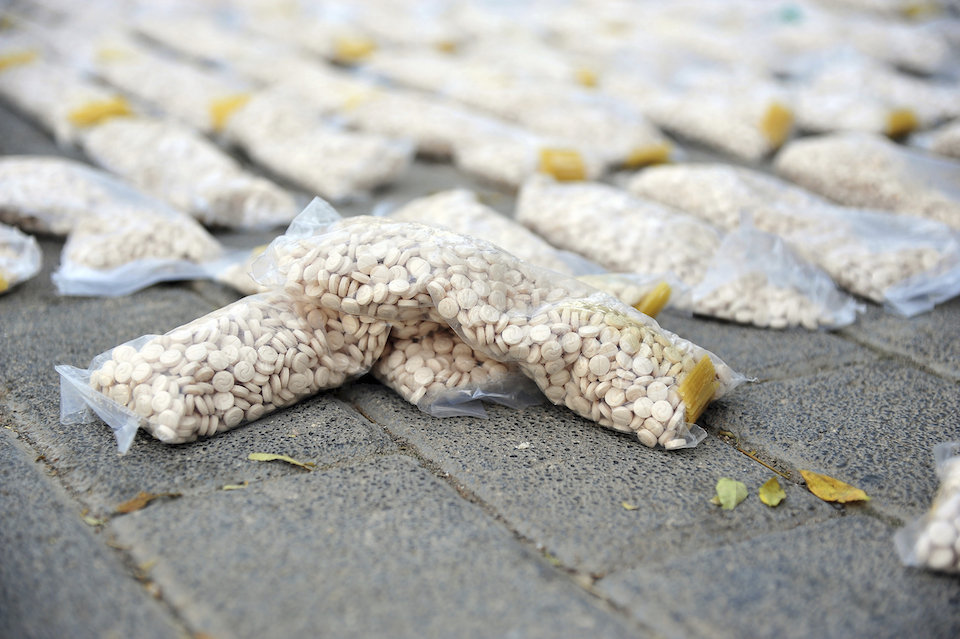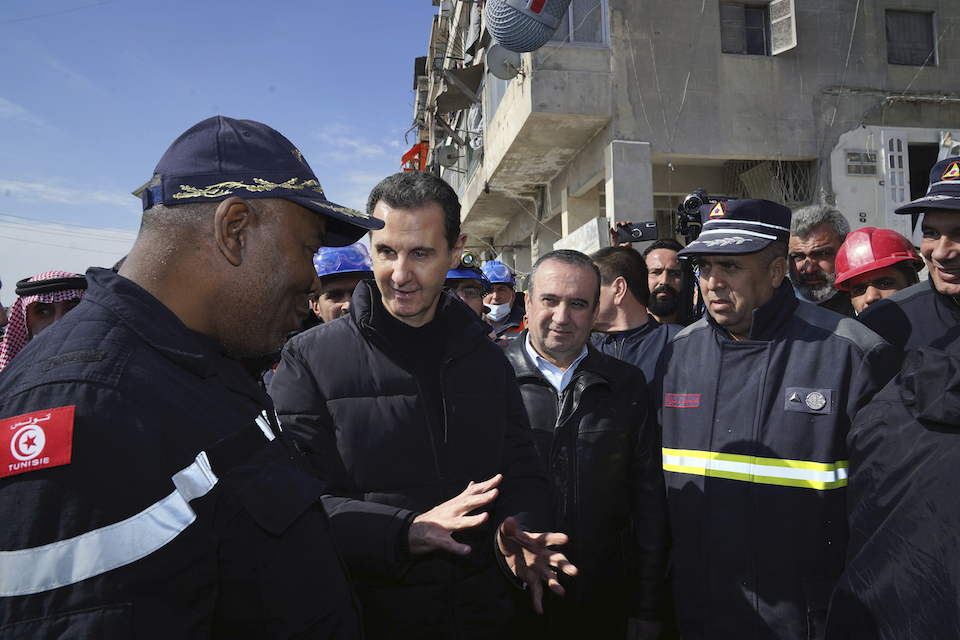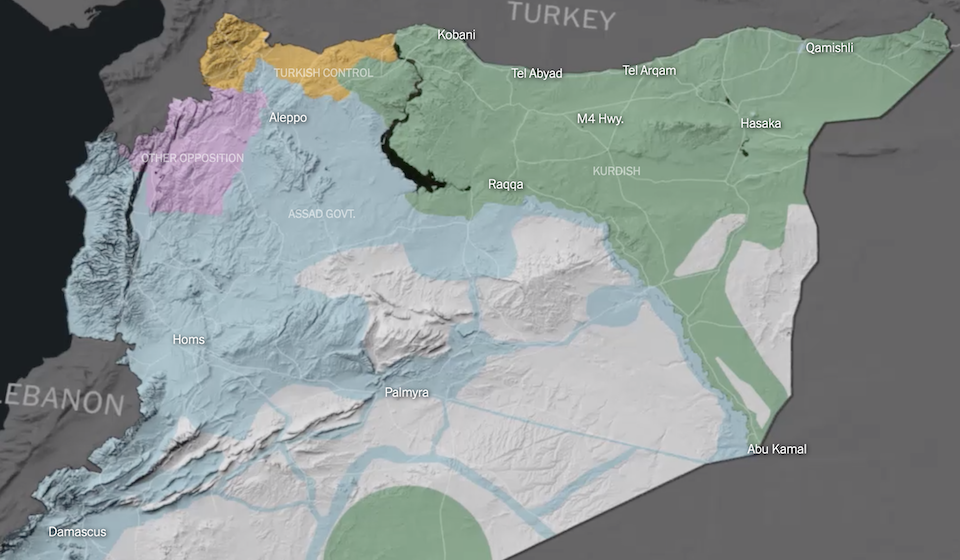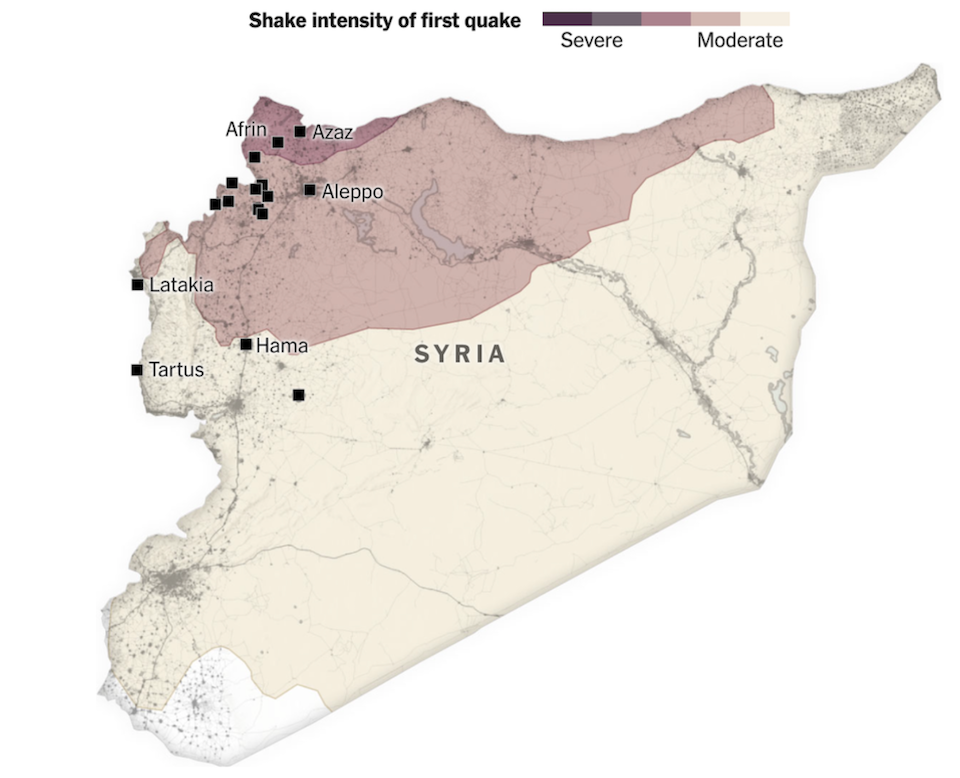
Foreign Secretary United Arab Emirates sheikh Abdullah bin Zayed Al Nahyan will be today (Tuesday, February 14) at USAmeet your American colleague closer, Anthony Blinken. An interesting “detail”: the Minister of Foreign Affairs of the Emirates just two hours ago, last Sunday, was in Damascuswhere he had contacts with the Syrian president Bashar al-Assad. Humanitarian relief mission in the northwest of the country affected by the February 6 earthquake. Syriawas at the center of the meeting between Zayed and Assad. The same issue is expected to be the focus of the Zaged-Blinken meeting.
Visits with meaning
However, apart from the current moment of the devastating earthquake, the Emirates is one of the countries maintaining open channels of communication with the Assad side. Abdullah bin Zayed Al Nahyan traveled to Damascus last January (2023) and also in November 2021. This visit in 2021 was, in fact, the first visit by an Emirati foreign minister to the Syrian capital since 2011. , the year it began (civil and indirect) war in Syria. Assad himself visited the United Arab Emirates in March 2022. Recall that his visit was the first visit of a Syrian president to an Arab country in more than ten years. In fact, as Charles Lister of the Middle East Institute wrote last September in Foreign Policy magazine, the fact of this visit was known to the Americans after the fact, through social networks, because the Emirati side did not inform them about it. As for the UAE Embassy in Damascus, it has already begun to open since December 2018.
Moving on a different trajectory than the Emirates, the administration Biden for his part, he stressed that in no case does he want to restore ties with the Syrian regime. Taking it one step further, Washington publicly denounces any international “attempt to legitimize” Assad by reestablishing ties with him.
Those who “approached” Damascus
However, there are countries “friends” of the US, in addition to the United Arab Emirates, which have established contacts with Damascus in recent years. OUR Algeria, Egypt, Bahrain, Oman, Turkey Erdogan, Tunisia And Jordan in recent years “contacted” with Assad’s side with mixed results.
Beginning in 2017, Jordan (which has previously supported the rebel side in Syria) will move closer to Bashar al-Assad, with both sides moving to open border crossings such as Nasib in 2018 and partially reestablish ties with each other. while many recall as evidence of past sentiment that Assad had a telephone conversation with the King of Jordan in October 2021.
However, we had contacts in the last period and on the axis Ankara – Damascusand the defense ministers of the two countries even met in December 2022 in Moscow, setting the stage for the proposed meeting Erdogan – Assad.
Role of Russia and Iran
12 years after the start of the civil war in Syria in 2011, Bashar al-Assad still holds under its control not all, but most (about 65%) of Syria. However, he owes his tenure in power, admittedly, to two countries: Russia and to Iran.
In addition, despite the partial restoration of Syria’s ties with some Arab leaders in recent years, Assad remains … a pariah in the eyes of the international community and rather isolated in the international arena.
Corruption and drugs
Syria stands out as the second most corrupt country in the world (after Somalia) in its latest ranking. Transparency International for 2022. It is also presented as drug state (narco-state), since it is from here that an ever-increasing amount of drugs comes: basically Captagon pills, also known as the “jihadi drug”..
“The Syrian regime is taking advantage of the chaos of the ongoing war to build a thriving drug empire,” Syrian journalist Taim Al-Hajj wrote last October on the Carnegie think tank website, referring to the millions of these Syrian-made pills that have been confiscated in recent years in Greece by the Greek Public Prosecutor’s Office. (By the way, tens of millions of Captagon tablets originating in Syria have been seized in Jordan in recent years.)

“An amount of processed cannabis with a total weight of 6 tons and 3 million Captagon hallucinogenic tablets… was discovered by the Coast Guard on the cargo ship Noka. This is one of the largest seizures of drugs in the history of the Greek prosecutor’s office. A cargo ship flying the Syrian flag left Latakia and, according to seized official documents, was heading to the port of Benghazi,” K wrote in December 2018.
“Millions of tablets of Captagon, also known as the “Jihad drug”, were seized during a joint operation by Turkish and Greek police in the port of Piraeus … The container left Latakia, Syria, bound for Dubai, but, in order not to arouse suspicion, made a long route through Greece and Croatia,” we read in a later K publication of January 2019.
Exactly four years later, the attention of the international community is once again turned to Syria, this time due to the devastating earthquake on February 6, which killed thousands of people (so far more than 5,700 people in Syria alone), hundreds of thousands of displaced people and massive disasters. … in a country with already very large and open wounds.
Humanitarian aid routes
How will humanitarian aid reach the lands of Enceladus-ravaged Syria? This was (and still is) a problem facing the international community in the aftermath of the February 6 earthquakes. In the first five days after the strike on Enceladus, no significant aid arrived in Syria, as disagreements arose over the route through which this aid would fall into the hands of the victims.
“It would be ironic, if not counterproductive, if we turned to the government, which over the past twelve years has caused so much suffering to its people by launching chemical attacks against its citizens and killing them…,” he said. A few days ago, State Department spokesman Ned Price tried to explain why Washington is refusing to cooperate with Assad’s side to deliver humanitarian aid to Syria. It is noted that the Americans, like the entire West, are ready to send humanitarian aid to Syria, but only through such channels as the UN and NGOs operating on Syrian soil.

Bashar al-Assad in the earthquake-affected areas of Aleppo (SANA via access point)
However, Bashar al-Assad’s side asks, on the other hand, that most of the Western aid first pass through Damascus (and not through the Turkish border, as is currently done), and then be distributed to the affected areas by the same authorities. .
Zones of control and borders
However, Assad’s forces do not control the entire territory of Syria. There are areas in the north and east that are controlled by the Kurds, areas in the north and west that are controlled by Turkey, and areas in the northwest (close to “Turkish”) that are controlled by the rebels, whose ranks also include extreme Islamists (Hayat Tahrir al -Sham – HTSh).

Control zones in Syria as of the end of 2019. Little has changed since then / Source: The New York Times
“In order to understand who controls what in Syria, it is extremely important to look at border controls, because they are an indicator of dominance and a projection of regional power. Today, the Syrian army directly controls only 15% of the country’s border, mainly the part that separates Syria from Jordan and a small part of the border in northern Lebanon,” Fabrice Balanche (University of Lyon 2, Washington Institute) told the FRANCE 24 network two years ago. , claiming that Assad survived in power in Syria, but as a “protectorate” of Russians (who officially maintain military bases in Syria and control its airspace) and Iranians (who unofficially allegedly have proxies in just hundreds of places in the Syrian south, with Hezbollah in the forefront and not only).

Could this recent devastating earthquake be an “opportunity” for Assad himself, allowing him to strengthen his negotiating position with the international community… break out of isolation… establish a reputation as a responsible leader on the international stage? Yes, there is room for Assad in the current crisis, Aaron Lund (Century Foundation) tells Reuters, but he thinks the Syrian regime is too “tough” to be able to change its line and profile. On the other hand, of course, the forces currently supporting Damascus are also “tough”, be they Russians or Iranians, while the “immobility” of their positions is strengthened in the shadow of recent major – and increasing polarization – events (the war in Ukraine on one parties and episodic protests inside Iran after the death of Mahshi Amini on the other).
However, Assad himself, succumbing to pressure from the West, as well as to the needs of the earthquake victims themselves, who need an immediate response, agreed – despite his initial objections – to open two more border crossings between Turkey and Syria – three in total, and it was open before the previous one only one – for a period of three months … and then we’ll see.
(Assad’s forces may not be in control of these areas on the border with Turkey, but the move allows the Syrian regime to send UN aid there through newly opened border crossings without the need for a new UN Council resolution.)
“Now the question is what Assad can demand in exchange for this move,” Reuters notes in its analysis, seeing the “diplomatic game” currently being played around the humanitarian crisis in Syria.
Source: Kathimerini
Anna White is a journalist at 247 News Reel, where she writes on world news and current events. She is known for her insightful analysis and compelling storytelling. Anna’s articles have been widely read and shared, earning her a reputation as a talented and respected journalist. She delivers in-depth and accurate understanding of the world’s most pressing issues.